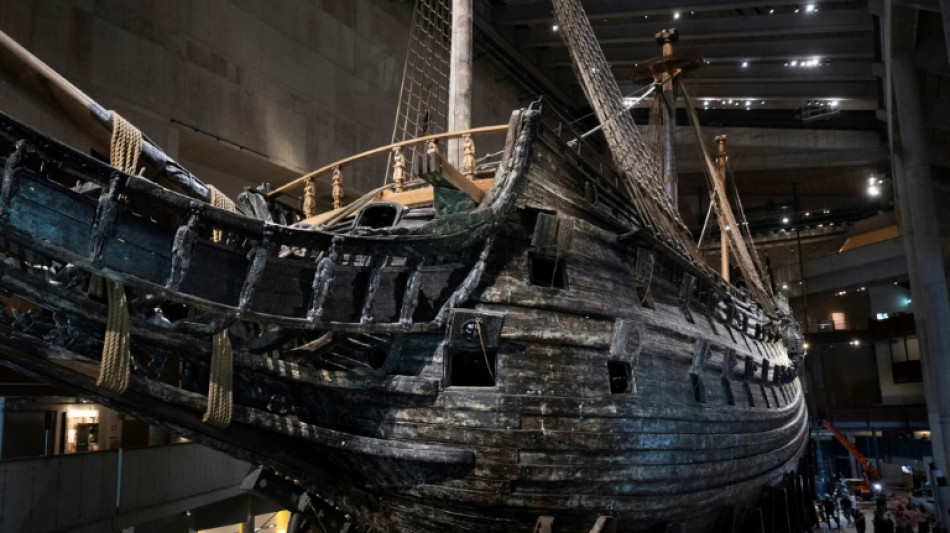

Sweden splashes out to save its unluckiest warship
Sweden is embarking on a colossal four-year project to safeguard a nearly 400-year-old warship that is the centrepiece of its famous Vasa Museum.
The ship, one of Stockholm's main tourist attractions, sank on its maiden voyage in 1628 and remained at the bottom of the sea until it was salvaged in 1961.
"We want Vasa to be preserved for the future," project manager Peter Rydebjork told AFP.
Despite the long delicate recovery operation, the ship "started to deteriorate faster" once it emerged from the sea after three centuries, he said.
In one of the most embarrassing naval calamities ever, the Vasa capsized only 15 minutes into its maiden voyage because of a design flaw, costing the lives of several dozen crew members.
- Stopping the movement -
After being protected by mud and the brackish waters of the Baltic Sea for three centuries, preserving it while on display at one of Stockholm's most popular museums has proved more complicated.
The wood has contracted over the years, and the ship is being compressed due to gravity. It is also tilting slightly to port.
"We have to stop the movement," Rydebjork said.
Work on building a new support structure began in April to replace the fragile current one.
The first phase of the project, dubbed "Stotta Vasa" (Support Vasa), is to stabilise the wreck.
Then comes the creation of a structure to support its weight and finally the ship will be righted.
- Steel skeleton -
By 2028 -- if all goes well -- the hull will be supported both externally and internally and the current 17 external struts will be replaced by 27 steel cradles with fixings under the keel.
Because the Vasa currently has difficulty supporting its own weight, a type of steel skeleton will be installed inside the ship.
Rydebjork said it has taken more than a decade of research to prepare for the ambitious project -- which is expected to cost upwards of 200 million kronor ($19 million).
"It's a really interesting job," Rydebjork added.
Despite its age, the ill-fated vessel is still well-preserved, with 98 percent of the original parts intact.
Polish tourist Lukasz Szyszka told AFP that the ship was in great condition and worth seeing, despite it being "freezing inside" the museum.
Its main hall is kept at a temperature of between 18 and 20 degrees Celsius (between 64 and 68 degrees Fahrenheit) with a humidity level of 55 percent to slow the deterioration.
The 43-year-old shopkeeper said work on the wreck was needed, saying it was also part of Polish history.
Swedish king Gustav II Adolf (1611-1632), who commissioned the Vasa, wanted to use it so he could to control Poland's ports on the Baltic.
(F.Moulin--LPdF)




